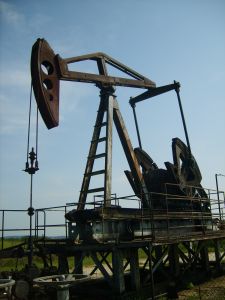 |
| Miami used to be swampland. Could it return? |
Those kids grow up and may wish for that innocence back. The real world is far more harsh. Dreams of the high school and college graduate are often dashed when many realize their constant toil will never bring any of them closer.
The emerging threat of ecological disaster renders just about all those previous worries inert. What difference does it make if that dream home or job is out of reach when the ocean's expected to rise and wash out coastal communities and Pacific island nations and tear the world economy apart?
Really.
Goodnight Miami Beach
Rolling Stone writer Jeff Goodell takes a novel approach to illustrate the situation. In "Goodbye, Miami," he fast-forwards 17 years to 2030 after Hurricane Milo strikes. "Most of the damage occurred not from the hurricane's 175-mph winds, but from the 24-foot storm surge that overwhelmed the low-lying city," he says.


